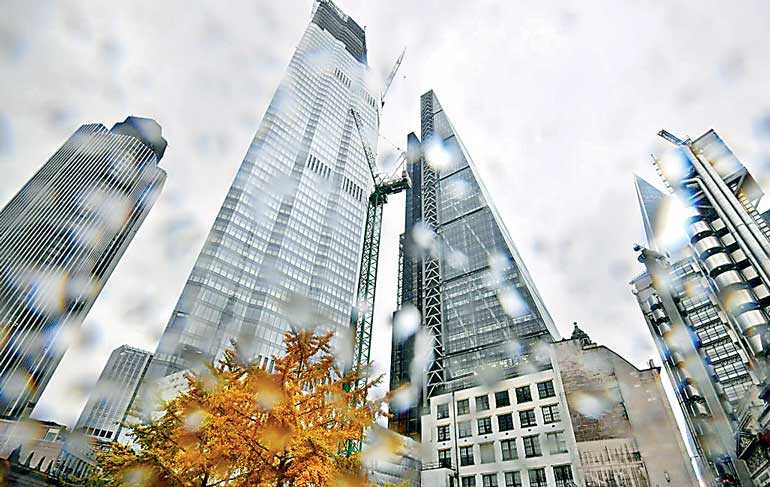Monday Feb 23, 2026
Monday Feb 23, 2026
Monday, 12 November 2018 01:25 - - {{hitsCtrl.values.hits}}

A tree covered in autumn foliage is seen with office skyscrapers around it during rainfall in the City of London, Britain - REUTERS
LONDON (Reuters) - Britain enjoyed its fastest economic upturn since late 2016 during the third quarter, spurred by a surge in consumer spending over the hot summer and the soccer World Cup, which now appears to be tailing off ahead of Brexit.
The economy expanded 0.6% in the three months to September, matching the consensus forecast in a Reuters poll of economists and accelerating from 0.4% the quarter before, the Office for National Statistics said on Friday.
Britain’s growth outpaced the euro zone’s by a large margin over the quarter, and finance minister Philip Hammond said the figures showed the underlying strength of the economy.
Still, analysts said there were worrying signals for the months ahead, despite better-than-expected trade data.
Business investment unexpectedly fell 1.2%, the biggest drop since early 2016, adding to signs of rising caution among companies ahead of Britain’s scheduled departure from the European Union in March.
“Looking beneath the surface, the uptick is skewed by the summer’s buoyant, World Cup-fueled retail activity,” said Tej Parikh, senior economist at the Institute of Directors.
“With order books weakening and major hiring and investment decisions being held back, business activity looks set to lose steam in the coming quarters.”
In September alone, Britain’s economy stagnated for a second month running, compared with forecasts for a 0.1% expansion, while the annual growth rate held at 1.5%.
Sterling and British government bonds showed little reaction to the data, which were largely as expected.
The figures showed net trade contributed 0.8 percentage points to the economic growth rate in the third quarter, the biggest boost since early 2016, as car imports dropped sharply — tallying with weak car sales data.
Household spending remained solid, expanding 0.5% after a 0.4% rise in the second quarter.
Surveys of companies over the last month suggest growth looks likely to lose momentum in the final months of 2018, as the seasonal spending boost from increased eating and drinking fades away.
A Reuters poll of economists published on Friday suggested growth in the fourth quarter would decline to 0.3%, a view shared by the Bank of England.